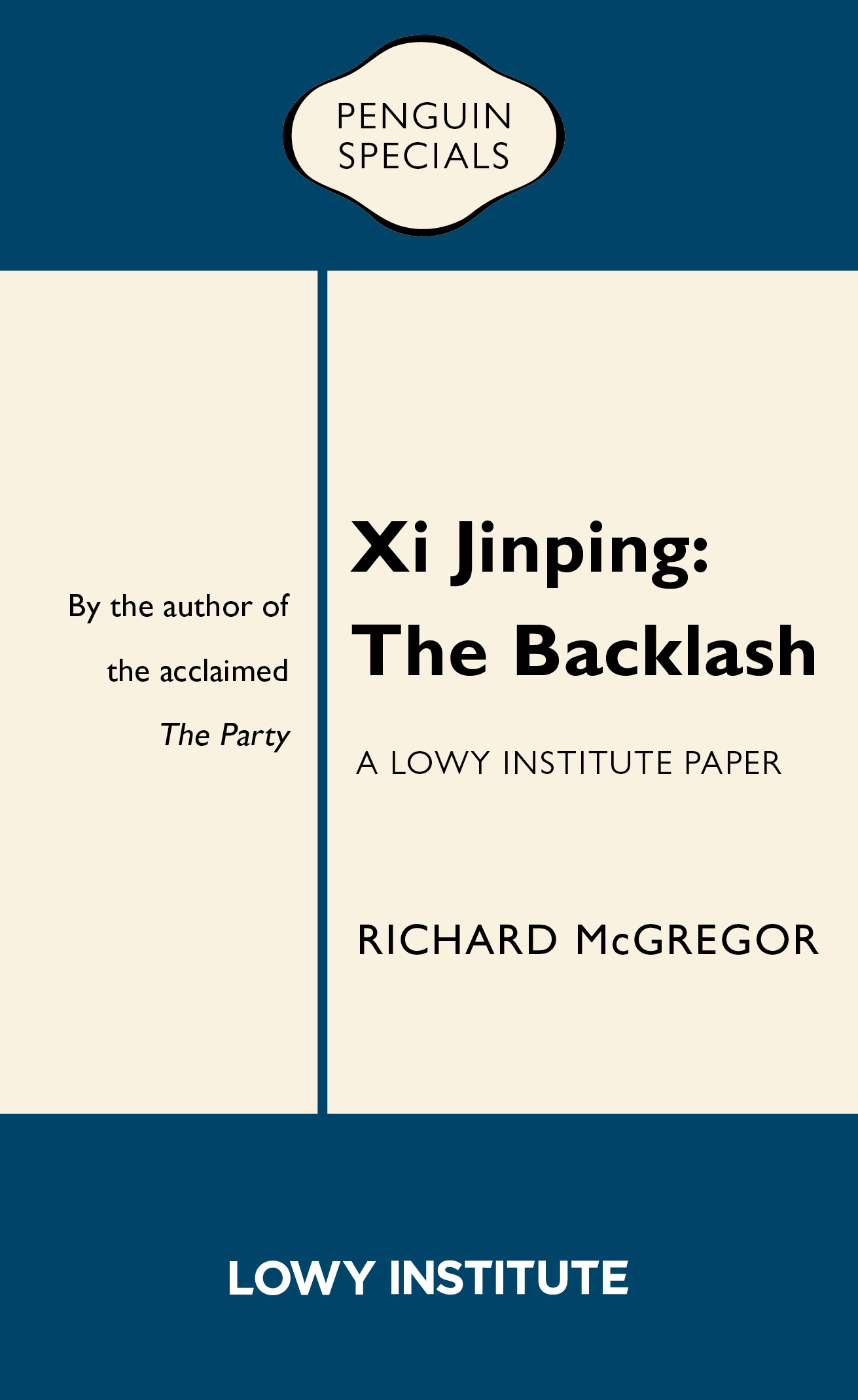
Richard McGregor has written a dazzling accountof the first six years of the Xi Jinping era and what he sees as the “backlash” to Xi’s increasing authoritarianism domestically and assertive foreign and defence policies. This short book will become as indispensable for understanding contemporary China as was, and remains, McGregor’s earlier book, The Party. Indeed, much of Backlash updates The Party for the Xi era. As such, some two-thirds of the book deals with domestic politics, which will be the subject of this review.
While the “backlash” towards China under Xi is most clearly seen internationally, domestically the evidence is more tenuous and the case for a “backlash” harder to make. This is not a fault of scholarship, but rather the difficulties of writing about China’s preternaturally opaque political system under conditions of extreme censorship, even in the social media age.
McGregor’s main thesis is that Xi’s anti-corruption campaign has created powerful enemies among the families of those brought down. It could hardly be otherwise. Xi has used anti-corruption both as a legitimate means to restore the Chinese Communist Party’s standing and as a powerful political weapon against rivals.